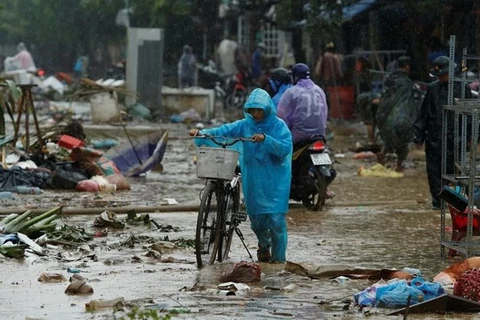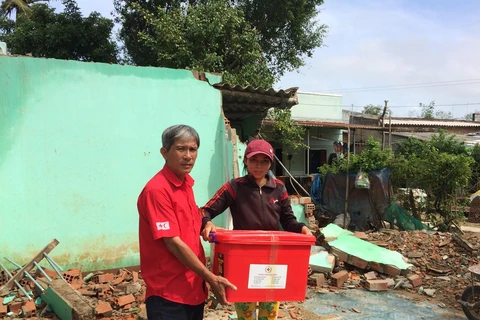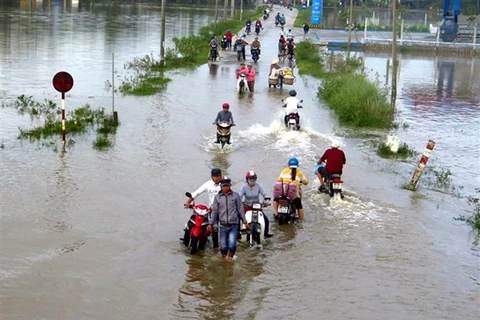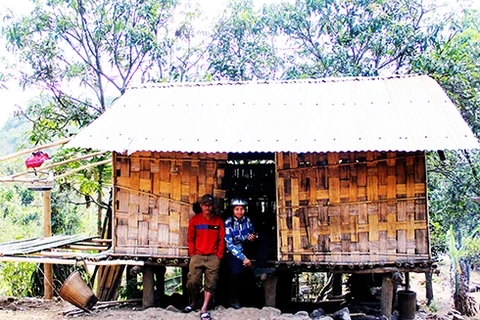 Typhoon Damrey, which raged through the south central coast of Vietnam in November 2017, caused severe damage to Khanh Hoa with more than 1,700 houses collapsed (Illustrative image. Source: VNA)
Typhoon Damrey, which raged through the south central coast of Vietnam in November 2017, caused severe damage to Khanh Hoa with more than 1,700 houses collapsed (Illustrative image. Source: VNA) Khanh Hoa (VNA) – The central coastal province of Khanh Hoa – one of the hardest hit localities by typhoon Damrey in 2017 – is carrying out various programmes and policies to help people overcome flood consequences and enjoy a warm Tet holiday.
The storm, which raged through the south central coast of Vietnam in November 2017, caused severe damage to Khanh Hoa with more than 1,700 houses collapsed.
After the storm, many businesses in Van Ninh district and Ninh Hoa town had to halt production, forcing more than 400 workers to stop working due to damaged factories.
Given this fact, the provincial Labour Federation has launched programmes to support employees, especially those from disadvantaged backgrounds and seriously affected by the natural disaster.
Many firms in the province pledged to fully implement policies to help workers enjoy Tet.
According to the provincial Department of Labour, Invalids and Social Affairs, the average Tet bonus by State-run enterprises will be 5.9 million VND (260 USD) per worker, the highest 44 million VND (1,940 USD) and lowest 500,000 VND (22 USD).
For joint-stock companies with State capital contribution, the figures will be 6.4 million VND (282 USD), 60 million VND (2,646 USD) and 200,000 VND (8.8 USD) respectively.
The average bonus paid by private enterprises and foreign ones will be 4.7 million VND (207 USD) and 2.6 million VND (114 USD) per worker.-VNA
VNA























